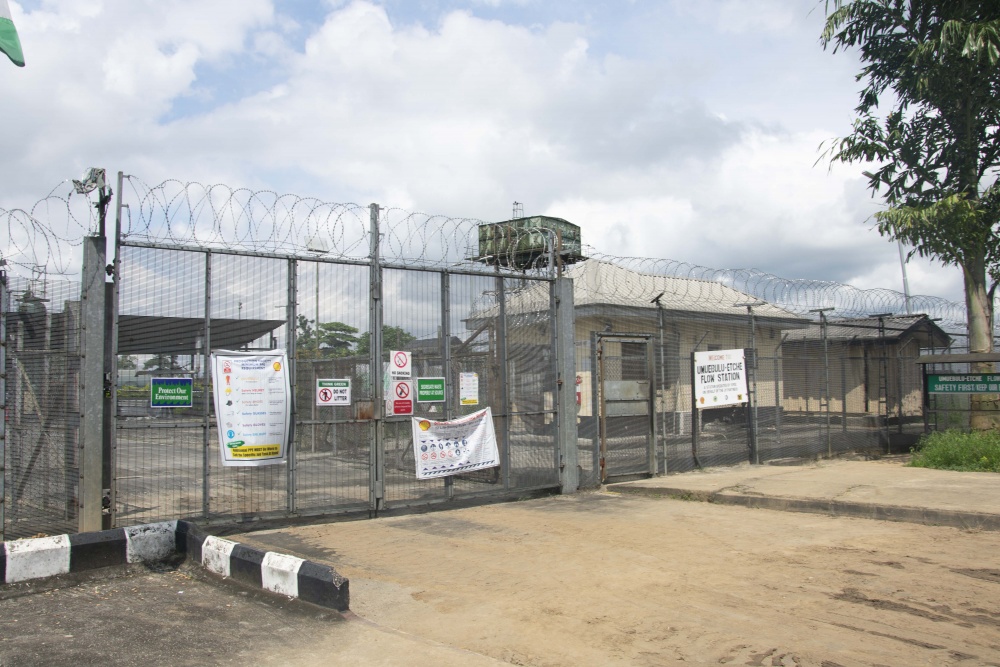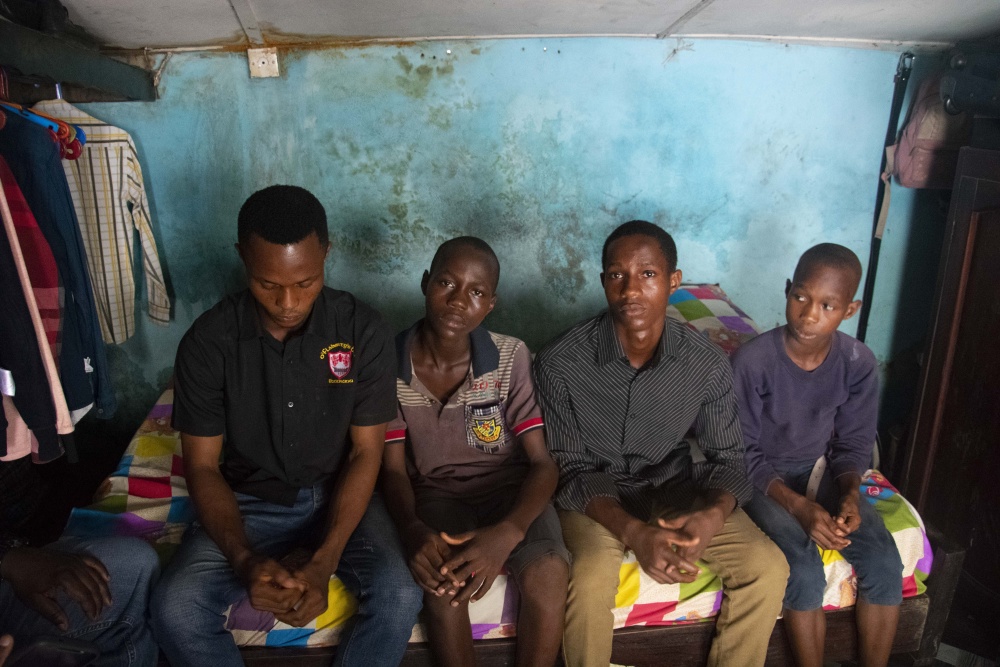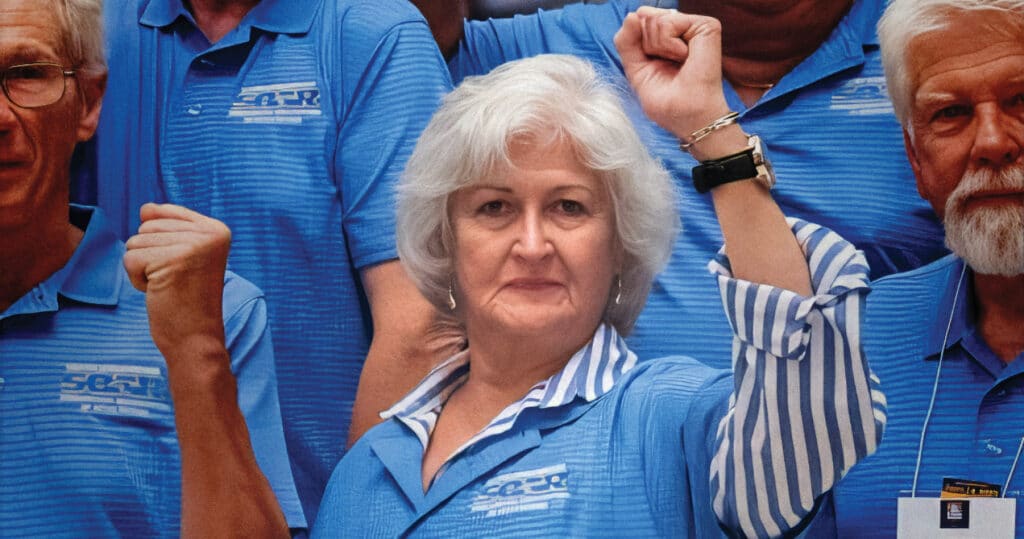Fact-Finding Trip to Shell’s Nigerian Operations Proves Eye-Opening to USW Oil Worker
A USW oil worker joined an international delegation on a fact-finding mission to Shell’s oil and gas operations in Nigeria. They discovered a workforce consisting of contractors who suffer poverty wages, health and safety hazards and miserable living conditions.
The USW International Union sponsored Vassey Lartson, a member of Local 13-1 who has worked at Shell Oil Company’s chemical lab in Deer Park, Texas, for 20 years. He is originally from Monrovia in Liberia.
Lartson joined a delegation from IndustriALL Global Union and two Nigerian unions, NUPENG and PENGASSAN, on a Sept. 15, 2018 visit to a Shell facility in Port Harcourt, Nigeria. He also participated in a workshop.
The group visited the Umuebulu-Etche Flow Station in the outskirts of Port Harcourt. They were unable to enter the facility, but they conducted interviews with about 20 workers.

“The interviews were very eye opening,” Lartson said. “The workers reported poor working conditions, safety challenges and disparity in pay between expatriate workers and local workers.”
A complex system of pay masters and community contractors pay the workers. Even though they work for Shell, they are not company employees.
They work 12-hours-a-day, six-days-a-week for monthly salaries ranging from US $137 to US $257. Some said their contractors had not paid them for several months.
“We work like an elephant and eat like an ant,” said one worker. “Our salary at (contractor) Plantgeria is about 95,000 naira (US $257). In Nigeria today, you can’t do anything on that. You can’t pay your children’s school fees. You can’t eat well. You can’t do anything better for yourself.”
Workers said that Shell determines what they get paid by contractors, but their appeals for better wages are ignored.
“If you ask for a pay rise, you will be escorted out by police. And then your job is finished. No more access to the yard until you sign something saying you will not join a union and you will not ask for a pay rise,” said one worker.
Shell is the biggest foreign multinational oil company in Nigeria, earning an estimated US $4 billion from Africa’s largest oil producing country in 2017.
In Shell’s code of conduct, the company states: “We seek to work with contractors and suppliers who contribute to sustainable development and are economically, environmentally and socially responsible.”
Yet, when members of the Shell Global Union Network approached Shell CEO Ben van Beurden at the company’s Annual General Meeting last May, he said it is not financially viable to give contract workers permanent jobs because they are not needed all the time.
Workers described a different reality: “They keep on classing us as ad-hoc workers, but we have been working continuously for as long as 20 years, while being paid less than US $150 a month,” one worker said.
Poor Living Conditions
“We got the opportunity to visit the homes of three workers, and I was shocked and saddened to see the workers’ living conditions,” Lartson said. “The average worker lives in a one-room abode with a wife and four to five children. They have to cook outside, and they have to use a toilet and take a shower in the same tiny room (about 3X 5 feet) with no running water.”
Workers reported that they had very poor health insurance coverage by a local HMO. The HMO would arbitrarily cover health care costs depending on whether or not the paymaster had paid the organization.
“We visited the home of a recently deceased worker, and met his four sons who were unsure of how they would be able to support themselves. Their mom had also passed away the previous year. There was no forthcoming support from the company or relief from medical bills,” Lartson said.

The contract workers also said they were exposed to hazards working in the field.
“This was a very eye-opening experience for me,” Lartson said. “As one worker stated, ‘When it comes to safety, Internet technology and human resources, Shell is global. But when it comes to the standard of living, it’s local.’”
The delegation also conducted a two-day workshop, and shared experiences on safety, precarious working conditions and organizing efforts.
“The workshop was very productive and appreciated by the local unions, who implored us to help support them in their efforts to fight for better safety, health coverage, working conditions and living conditions,” Lartson said.
The USW and IndustriALL are part of the Shell Global Union Network, which has a global campaign to stop precarious (temporary, contractor) work at Shell. Contract workers outnumber permanent employees by more than a two-to-one ratio, and do the most dangerous jobs. Unions estimate the ratio is even higher at Shell’s operations in Nigeria, but the company does not disclose figures for individual countries.
Last September, Shell announced it had joined forces with other energy companies to assess the human rights records of suppliers to the energy industry. The participating companies said they recognize the importance of working with suppliers that respect human rights, including the fundamental conventions of the International Labour Organization.
Shell, however, refused IndustriALL’s offer to work with the company on investigating the same human rights concerns.
Click here to read more about and to viewmore photos on IndustriALL’s website.
By clicking Sign Up you're confirming that you agree with our Terms and Conditions.
Recent News Articles
Want to Learn More?
See how the USW is making a real difference in our communities and our workplaces.

